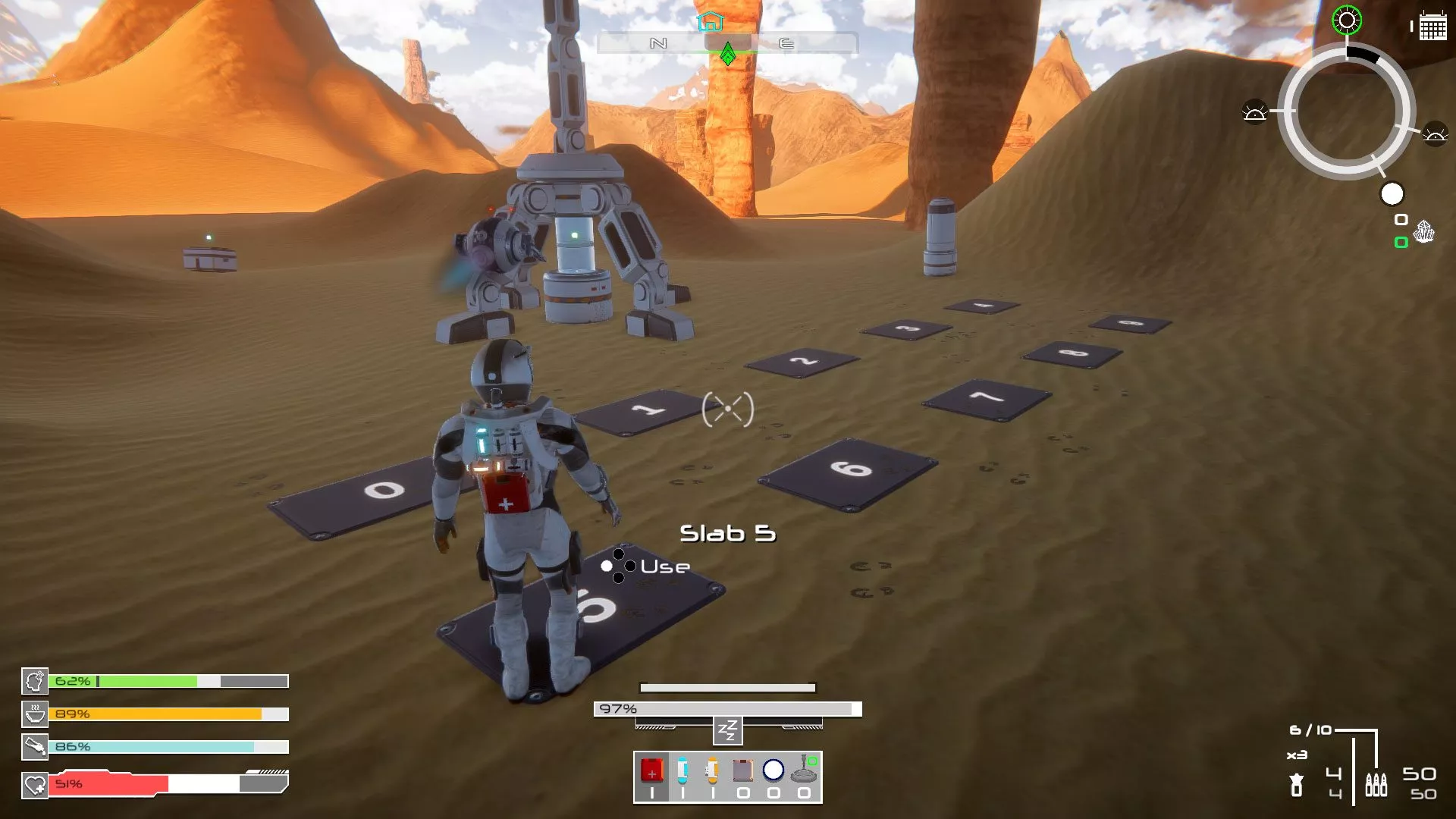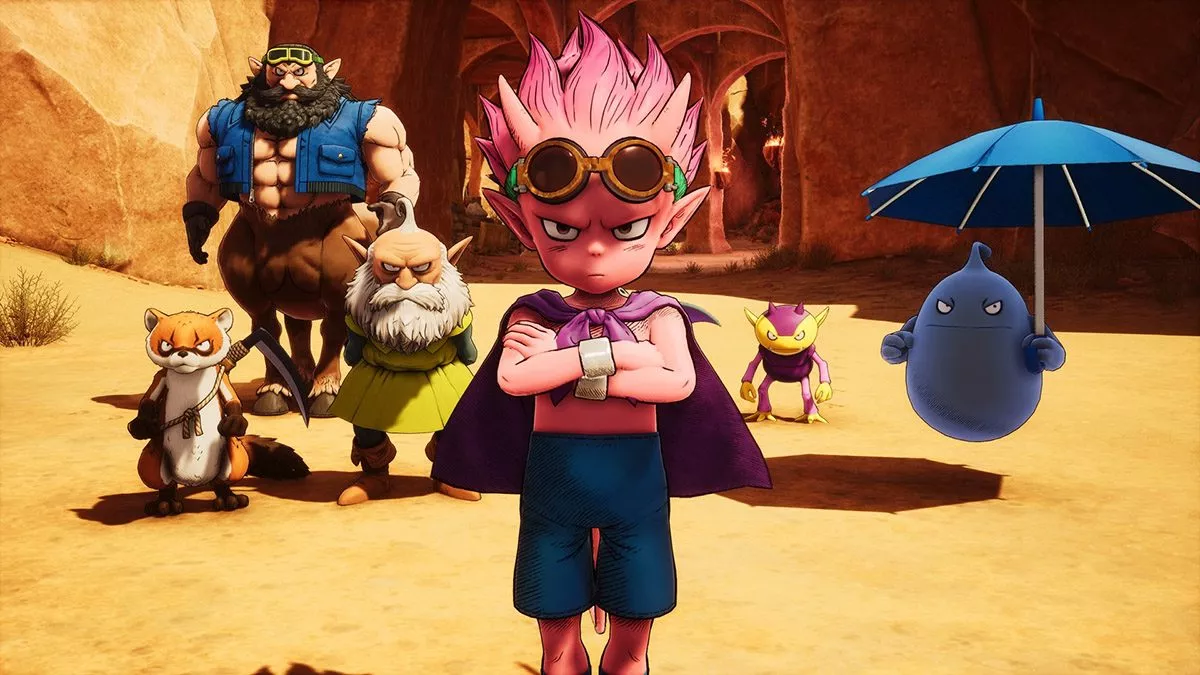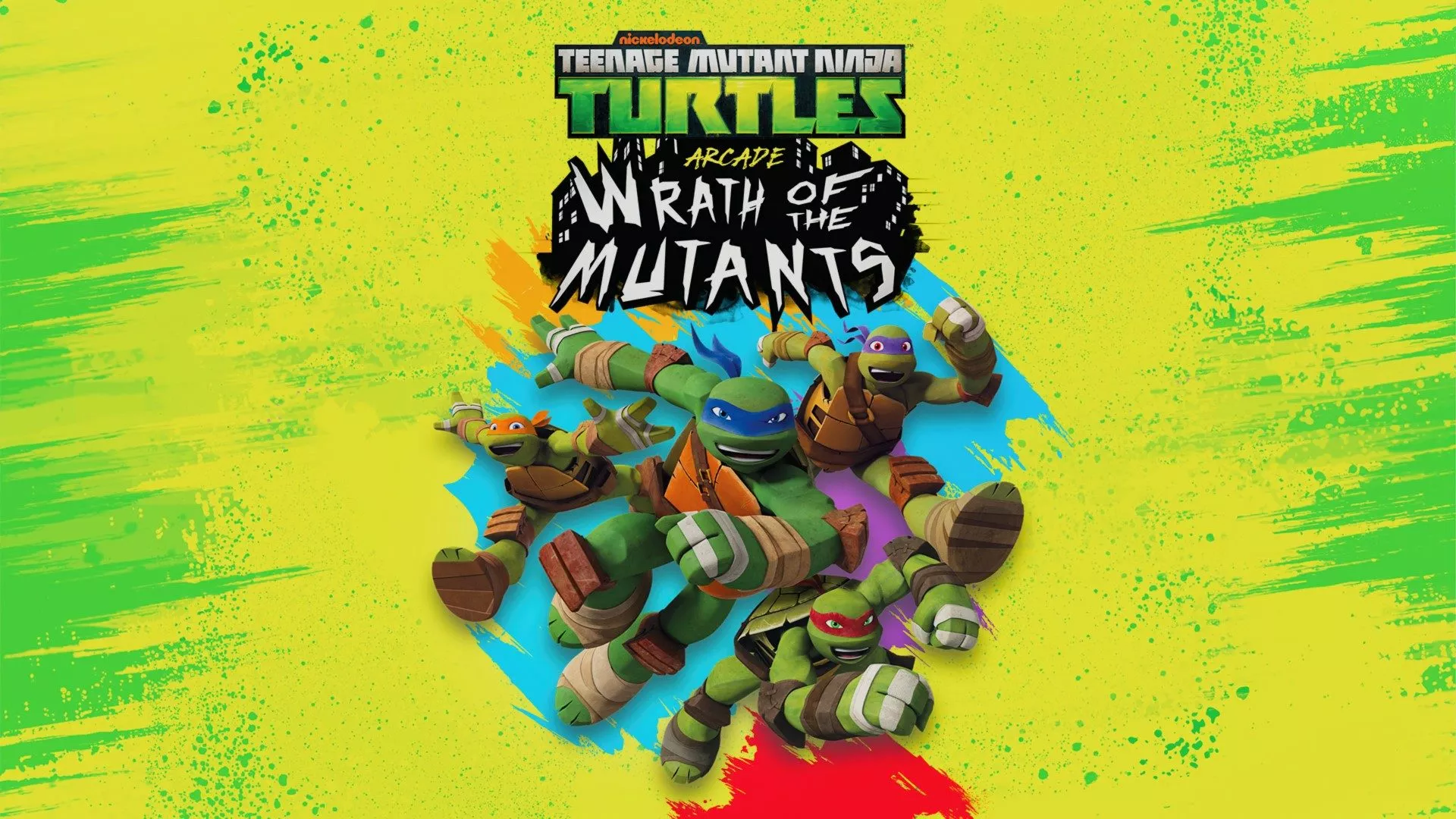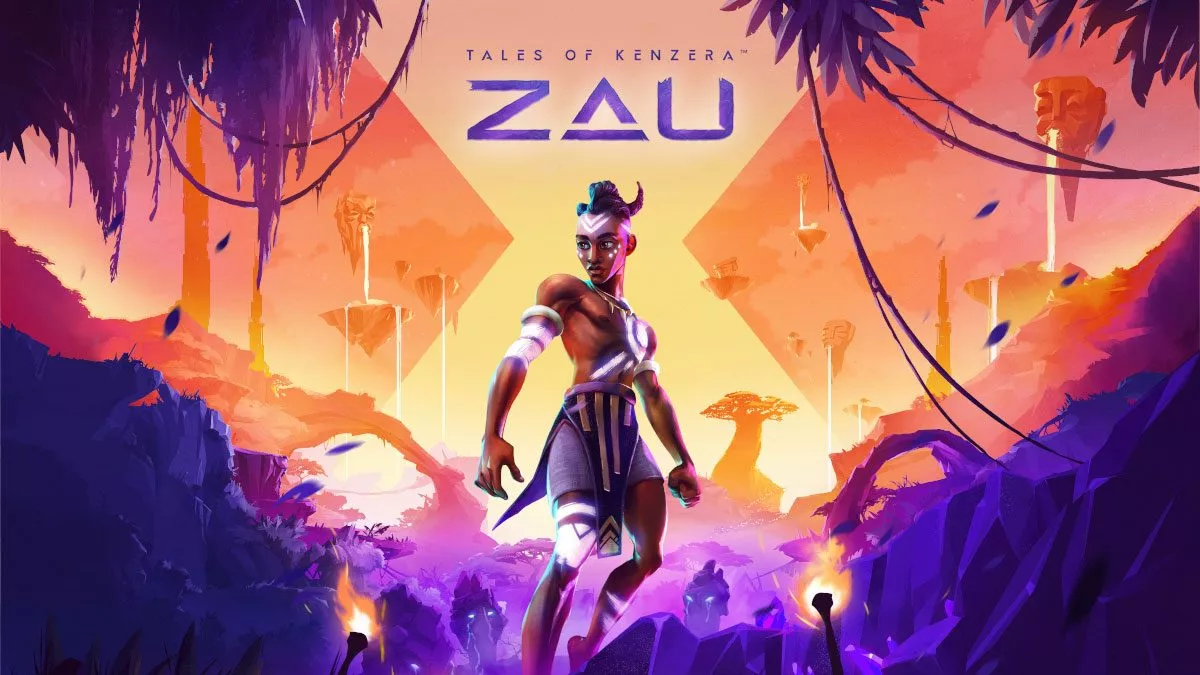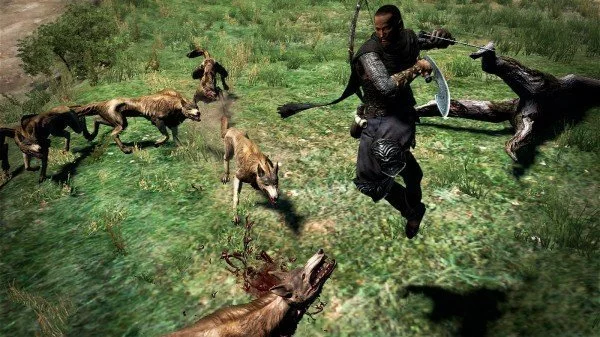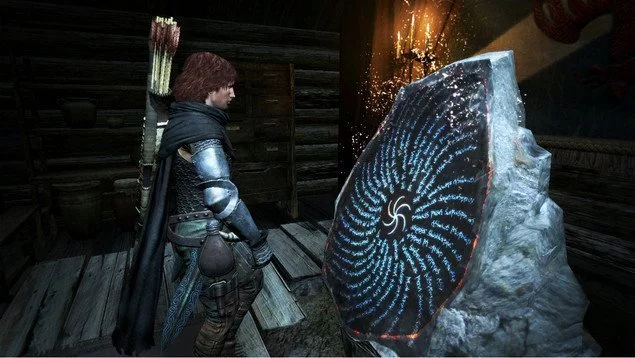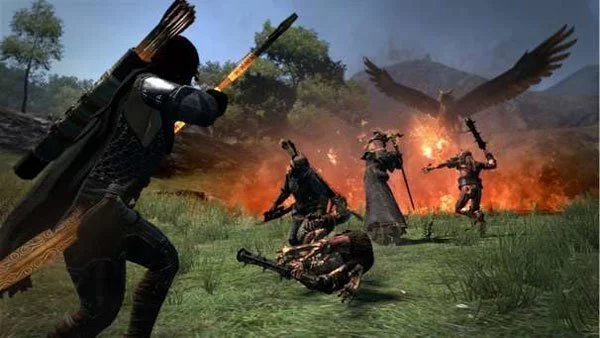Dragon’s Dogma is an ambitious title. Since the late 80s, Japanese RPGs have tended to follow a very similar design – this is not a criticism; in fact, I would suggest it’s a strength of the genre. Still, Capcom enlisted Producer Hiroyuki Kobayashi (who has worked on the Resident Evil, Dino Crisis and Sengoku Basara series’) to develop a new RPG – one that was more European than Japanese; one more in the vein of The Elder Scrolls and Dragon’s Age than Final Fantasy and Dragon Quest.
For the most part, the team succeeds. They’ve created a large, free roaming RPG, with appropriate language (then again, if I hear the word “aught” one more time…), real-time battles and “European” (for want of a better term)-style armour and weapons… Although later in the game there are some ridiculously oversized swords. In fact, a lot of ‘Japanisms’ have found their way in to the game, and it’s refreshing simply because it’s clearly not cut from the same mould.
For example, if you linger on the title screen, an upbeat pop rock song will start to play – sure, this is very Capcom, but it’s NOT common in similar RPGs. Further, the look and feel of everything in the game manages to have a kind of manga vibe, while still maintaining the themes. And it’s these kinds of little differences that put Dragon’s Dogma in a league of its own.
Actually, virtually everything has been employed a little differently. From the mapping of special abilities to individual buttons on the controller (each of which needs to be “learnt”—or purchased really—using experience points), to the potential to change your speciality at any point during the game – or even the ability to climb larger enemies Shadow of the Colossus style, Capcom hasn’t just toed the line.
Consider the party system. In this game, players can travel with up to three ‘pawns’—these are other worldly characters who have pledged their allegiance to you, the Arisen (so named because at the beginning of the game your heart is removed by the eponymous dragon, yet you still live on). One of these is a permanent support character, who levels up along with your main character, essentially allowing you to create two characters early on. The remaining pawns are swapped in and out at Rift stones found throughout the land – for the most part, these are all creations of other players (just as your pawn is also available online for others to recruit). It’s a great little system, particularly as higher-level pawns will come with associated skills and quest knowledge…
It’s far from perfect, though. For one, I’m a little uncomfortable referring to it as a totally open world title (hence the ‘free roaming RPG’ above). While the map is open in part—I say in part because the map follows roads that are often surrounded by water or otherwise inaccessible mountainous areas—the enemies don’t scale with you as you level up. Essentially, sections of the world have enemies that are more difficult than in others. What this means is that the game expects you to be a certain level before you arrive. Personally, this doesn’t jive well with what I would call ‘open’, as you can’t really go where you want whenever you want.
When I started, for example, my plan was to ignore the side quests (for the most part), and work on getting through the main quest as quickly as possible. The game certainly allows for this, and even let me get all the way from my little home town to Gran Soren, the capital. What it DIDN’T allow for, though, was any further progress along the main storyline. I actually had to trek all the way back to my hometown to complete some of the initial side quests just to level up to a point where I wasn’t totally OWNED by enemies in the main story. Grinding is nothing new, of course, but the problem revolves around the TYPE of side quests that are on offer.
As usual, you have your fetch quests, and your escort quests, in addition to ‘kill a certain number of critters’ quests, but the travel distance that is often required in order to complete said quests is often (in my opinion) ridiculously far. As a result of the multiple closed-off areas of the map described earlier, as well as the fog of war blocking out undiscovered sections of your map, you often need to backtrack in order to find the right path… and often through treacherous territory. I found myself neglecting the escort quests altogether, simply because they took so LONG. With limited fast travel capabilities (the ‘ferrystones’ required to perform this are expensive and not abundant outside of shops), getting about in this game is a nightmare.
Then there’s night time. A great addition, as the night is frightening. No – it’s HARROWING. At night, all the critters are out for your blood, and if you get stuck in the open at night, you’re almost guaranteed to die. Great… On one hand, the night time is a clever and terrifying addition, but on the other, it adds to the frustration of either being unprepared, or under levelled… Or both.
As a final point to note, I found the story underwhelming. The side quests, as mentioned, are insanely pedestrian and boring, but the main story… Well, let’s just say I paid very little attention. That’s not to say I didn’t enjoy playing, it just didn’t have a major impact on me.
Even given its foibles, though, Dragon’s Dogma is a worthy addition to the RPG stable. The fighting mechanics are really quite fun when you aren’t being pounded into dust – and hey, perhaps that was my fault for rushing the early stages and being unprepared? If Capcom can work on ironing out some of these issues (particularly the unforgiving difficulty and lengthy travel times), I will certainly sign up to play a sequel. There are some great ideas employed here by a team clearly trying to do something new in a competitive genre, and I applaud them for that.
This article may contain affiliate links, meaning we could earn a small commission if you click-through and make a purchase. Stevivor is an independent outlet and our journalism is in no way influenced by any advertiser or commercial initiative.





